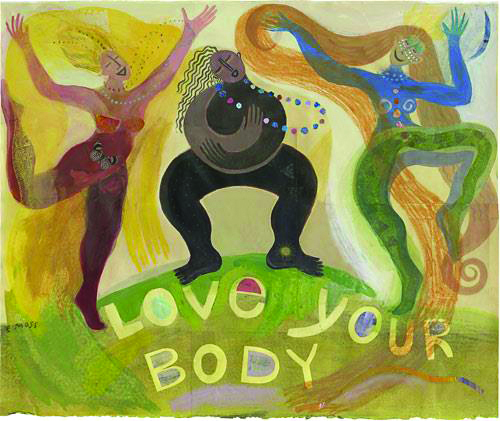This week is Body Beautiful Week at St. Lawrence – a week of action intended to take a stand against our culture’s narrow definitions of beauty. This idea of body pride, of accepting parts of ourselves societal norms often tell us are flaws, has become incredibly of the moment. It is pretty cool now to “love yourself.” Companies like Dove tell women that every part of themselves is beautiful, from embarrassing scars to stretch marks on thighs. Underwear brands like Aerie are no longer photoshopping the cellulite and rolls on their models in a campaign for body positivity. Plus-size models like Ashley Graham and Ishra Lawrence are making the covers of magazines like Sports Illustrated, which would have been unheard of just a few years ago, and changing our society’s definition of which bodies are acceptable to sexualize in the process.
A lot of this is good: it is important for us to expand our oppressive ideas of who is and is not beautiful, and if any women feel more comfortable about their physical appearance because of ad campaigns like these, there is some real good being done. Women are told repeatedly that who they are is not good enough, and I am so thankful it has become more normalized to talk about the ways our society profits from self-doubt.
However, I can’t help but feel somewhat hesitant about one important aspect of this movement–the fact that it is largely centered around advertising campaigns. These companies do not want you to love yourself because it is necessary to love oneself. Companies like Aerie and Dove want you to love yourself so that you will consume goods to cement your self-worth. I guess on its face, this is not necessarily a bad thing. But it is important to recognize the ways capitalism infiltrates our rhetoric surrounding self-acceptance and the greater implications of how we often confuse the two. There are major economic incentives to brand yourself as a company that supports body positivity. You can profit from this branding without actually having to have the real and difficult conversations about the issue.
For instance, there are important discussions to be had about “beauty” as an idea. Beauty, while it may be in the eye of the beholder, is clearly socially constructed. It is impossible to talk about beauty without acknowledging the insidious ways it has marginalized women of color, disabled people, trans people, queer people, and fat people in the Western world. Reclaiming our flaws, which is so central to the body pride movement? These flaws are almost always minute ways white women feel excluded from what it means to be beautiful, something women of color are told to feel every single day. It is still a very small portion of our population we deem appropriate to comfortably stretch our notions of beauty by now including them in media representation. It seems absurd to talk about plus-size models as radicalizing what it means to be beautiful when women like Ashley Graham, by all accounts, would be considered gorgeous in any setting besides, apparently, our print media. What changed that made women her size suddenly appropriately beautiful enough to put on Sports Illustrated two years ago?
Which brings me to my biggest issue with the idea of “beauty” in the first place: it is so meaningless. These ideals have been morphed by cultural forces for generations. If anyone tries to argue that they are founded by common biological needs, let me just point to the unfathomable ways just our ideas of what weight is most desirous has changed over the last four hundred years. Beauty is subjective. By telling people that their flaws are beautiful, we are only enforcing the belief that this fickle, flimsy, arbitrary idea of what is beautiful is something we should want to attain. Who you are as a person is in no way related to how beautiful you are. So maybe that’s why the many women I’ve asked when they feel most beautiful have shared stories with enormous similarities: stories about them in the backcountry, stories about them playing a sport they love, or being with family members who love them. This is why I feel the most beautiful when I am in the mountains, hiking with my father, with sweat coalescing on my face in gooey droplets – they are all times when who we are as a person is all that matters. It’s when we feel free. It’s when we are free from beauty.



